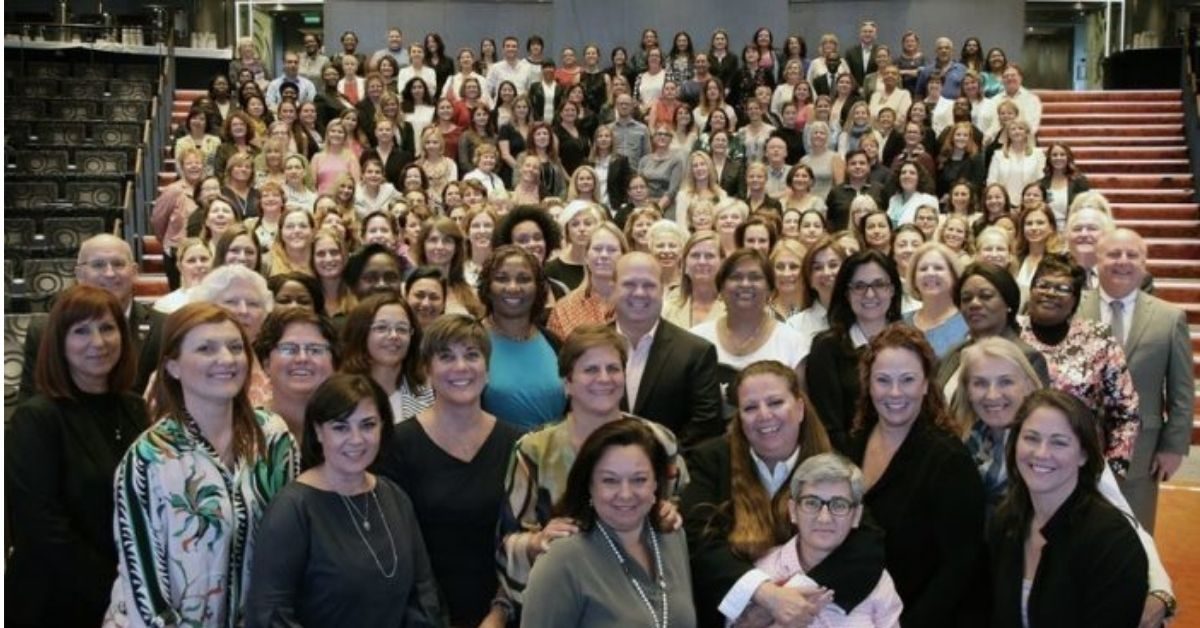The International Maritime Organization (IMO), and the Women’s International Shipping & Trading Association (WISTA International) have launched the inaugural Women in Maritime – IMO and WISTA International Survey 2021 to examine the proportion and distribution of women working in the maritime sector, from support roles to executive level positions.
The survey is part of a series of activities aimed at laying the groundwork for further discussions on how to build a more diverse workforce within the maritime sector, essential for a sustainable future. The data obtained by the survey will help build a picture of diversity and gender equality in the industry.
The launch of the study follows the 2020 signing of the IMO-WISTA Memorandum of Understanding (MoU) on promoting greater diversity and inclusion through enhanced cooperation activities in the maritime sector. The MoU was signed by IMO and WISTA International, an international organization whose mission is to attract and support women at the management level, in the maritime, trading and logistics sectors. The MoU aims to set a framework for both IMO and WISTA to promote gender diversity and inclusion as vital factors in providing a sustainable future for the shipping industry worldwide.
IMO Secretary-General Kitack Limsaid: “Diversity in maritime matters. Empowering women fuels thriving economies across the world, spurs growth and development, and benefits everyone working in the global maritime community and beyond. We need solid data on female participation, as this will enable us to track and quantify our ambitions in what has traditionally been a male-dominated sector. I am pleased to invite all Member States and maritime stakeholders to take part in this important survey.”
Despina Panayiotou Theodosiou, President at WISTA International said: “Having comparable data is a key component when creating programmes and proposing policies that will increase the participation of women in maritime. It is an essential step forward in creating a more diverse and inclusive environment in our sector. With our global reach we can amplify the strength of this survey to show real results and back our drive towards an inclusive maritime sector.”
In addition to the just-launched survey, other initiatives under the IMO-WISTA MoU include developing a database of female experts in a wide range of maritime subjects who are available for speaking engagements. This will contribute towards more diverse panels.
Another key objective of the IMO-WISTA MoU is to strengthen cooperation and share best practices between the IMO-established regional Women in Maritime Associations (WIMAs) and WISTA International’s National WISTA Associations (NWAs).
In 2019, the IMO Assembly adopted Resolution A.1147(31) on Preserving the legacy of the World Maritime theme for 2019 and Achieving a Barrier-Free Working Environment for Women in the Maritime Sector (link) which urges firm action in coming years to advance gender equality throughout the maritime sector and help create an enabling work environment that embraces equality, diversity and reduces bias. The resolution was adopted following a year of action to promote diversity under the World Maritime theme, “Empowering women in the maritime community”. This work continues, including under the IMO women in maritime programme. Read more here: https://www.imo.org/en/OurWork/TechnicalCooperation/Pages/WomenInMaritime.aspx
Women in maritime survey
The IMO and WISTA International survey is open to IMO Member States, IGOs, NGOs, public and private companies in the maritime sector and maritime training establishments. There are two separate surveys to be completed by Member States and industry.
To access the survey click here https://www.research.net/r/IndustryIMOWISTA
The 2021 inaugural survey is being carried out by IHS Markit on behalf of IMO and WISTA International. The intention is to repeat the survey every three years. The aim is to support implementation of the United Nations Sustainable Development Goals (SDGs), in particular SDG 5 on gender equality, SDG 8 on decent work, and SDG 17 on partnerships. The data collected will assist in creating programmes and proposing policies that will increase the participation of women in maritime, thereby creating a more diverse and inclusive environment in our sector.








